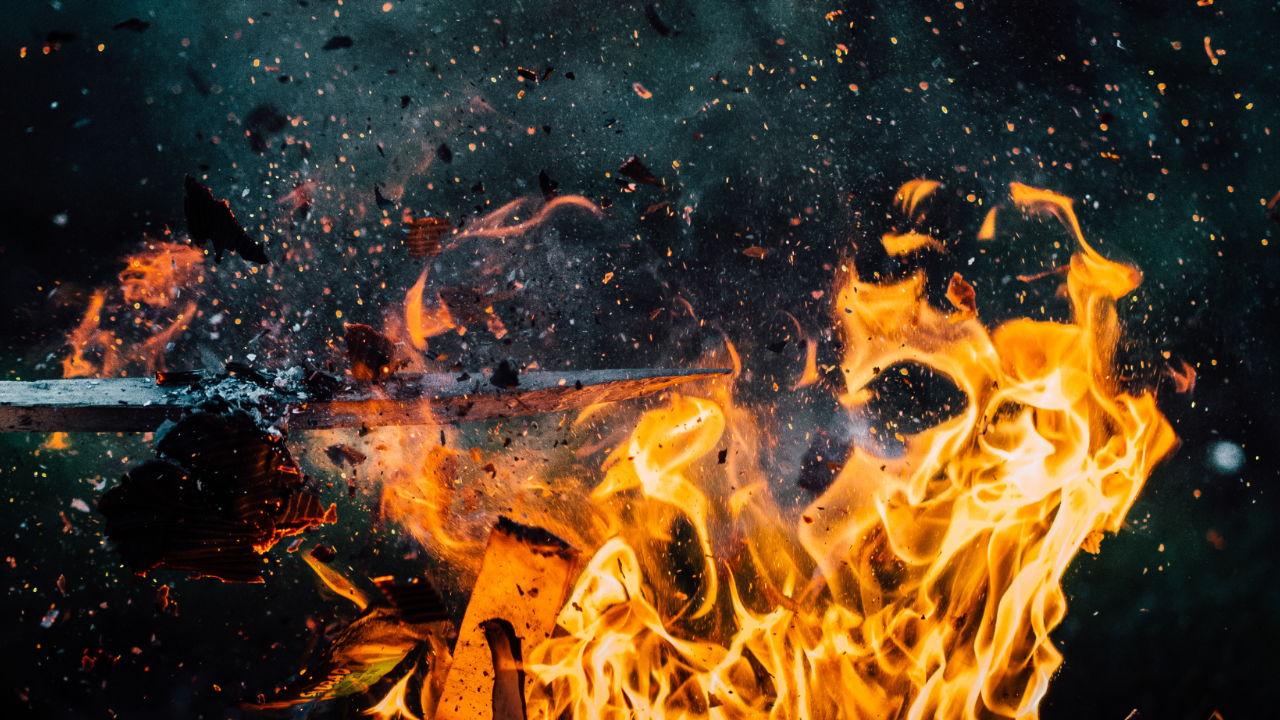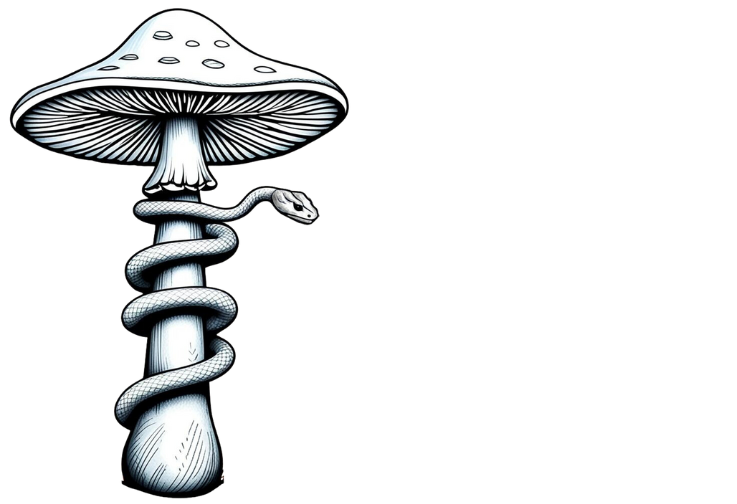What is the Divine Masculine?
Dec 18, 2023
The divine masculine does not refer to a gender. Rather, it’s an archetype, an ancient, primordial energy that exists within all of us. Its energy signature is strong, logical, disciplined, confident and protective. It’s Universal Fatherhood in its highest, most aligned state.
Carl Jung described archetypes as “riverbeds that dry up when the water deserts them, but which can be found again at any time.”
This allegory is incredibly fitting when discussing divine masculinity, which in our patriarchal society has become warped, distorted and cast aside in favour of its shadow.
Yet, the potential for the divine masculine to reawaken is always present. It can be reclaimed only if we collectively honour and remember true masculinity.
- It’s not noble to outshine others; true nobility comes from surpassing who you once were.
Throughout history, masculinity has been like a chameleon, adapting to the changing colours of societal norms. In ancient Rome, Mars, the god of war, symbolised the ultimate masculine figure. Stories of heroes like Odysseus and the fierce Germanic warrior Arminius, driven by passion and raw emotion, highlight the diverse facets of masculinity, highlighting its spectrum rather than a fixed concept.
Fast forward to the 21st century, and the modern man faces conflicting messages. On one side, he’s encouraged to embrace sensitivity and emotional intelligence, while on the other, traditional roles from the past are still present. Today’s quick technological changes and evolving societal norms have left many men wrestling with their identities. The once-stable constructs of masculinity appear to be in flux, challenging individuals to navigate this ever-changing landscape.
The talk about masculinity surged in the late 20th century, showing a heightened interest in this complex topic. The idea of divine masculinity emerges as a guiding light for those navigating the turbulent waters of identity. It beckons a return to the fundamental essence of manhood, free from societal pressures and embracing authentic identity.
As the Invisible Man sets out on this exploration, he’ll dive into the layers of divine masculinity, unravelling its aspects, grasping its importance, and ultimately leading the modern man toward a more genuine and satisfying expression of his true self.

What is Divine Masculine?
Unlike the surface-level and societal views of manhood, the concept of ‘Divine Masculinity’ goes more in-depth, transcending the physical to tap into the spiritual. It’s characterized by action, leadership, and a proactive approach to life, urging men to take control, assert themselves, and be confident in their desires. This energy involves grounding in the external world while embracing the internal. To truly understand it, one must journey back to ancient tales of gods and rebels, where the seeds of divine masculinity lie.
These stories, often found in ancient myths and legends, unveil divine masculinity’s historical and cultural aspects. They offer insights into the ideals of past periods, acting as a mirror reflecting societal norms and expectations of manhood. Examples include Zeus, the sky and thunder god of Ancient Greece; Odin, the Allfather in Norse mythology; and Shiva, the destroyer and benefactor in Hindu mythology.
How To Awaken The Divine Masculine
- Heal Your Father Wounds: Your relationship with your father or father figure can significantly affect your relationship with masculine energy. If you had an abusive, absent, or emotionally distant father, you may need to work on healing those wounds.
- Challenging Cultural Conditioning: Unfortunately, many people subscribe to strict gender identity roles that can limit your capacity to embrace your authentic masculine energy. Redefine what the divine masculine means on your terms.
- Learn To Express And Process Your Emotions: Many people are taught to bury their emotions, which can lead to a disconnection from their inner world. Learning to express and process emotions healthily is an important part of healing.
- Find Your Purpose: Pursuing your life’s purpose requires discipline, focus, and determination, all qualities associated with the divine masculine. Empower yourself by developing these qualities and making strides towards reaching your goals.
- Research On Divine Masculine Archetypes: Find inspiration in spiritual and mythological figures embodying the divine masculine qualities. Check out Shiva from Hindu mythology, Odin from Norse mythology, Gilgamesh from Sumerian mythology or Apollo from Greek mythology.
- Meditation has many benefits, not least of which are how grounding and-centred you feel during and after meditation. Meditate to improve your self-discipline, determination, perseverance and focus!
- Set Your Intentions: Set your intentions. In fact, write them down. Make a commitment to yourself to take action towards your goals. Manifestation comes from the seeds of intention.
- Get Up And Go: If you’ve been stuck in a stagnant situation, working from home, or just taking time out from social needs, get back into life by planning a few adventures. Bonding with nature is a great way to nurture masculine energy.
- Be A Protector: Learn to protect yourself and others by taking a self-defence or first aid course. Volunteer to work with disadvantaged communities and model responsibility, strength, courage, compassion, and leadership qualities.
- Develop Your Critical Thinking Skills: Question assumptions, analyze arguments, practice active listening and stay open to new perspectives and ideas.
In today’s patriarchal culture, we have come to respect the shadow aspect of the divine masculine, which includes aggressiveness, narcissism, misogyny and objectification of women. These qualities saturate our media so much that we barely even notice them. Sadly, they have become normalized.
Reclaiming the divine masculine by redefining masculinity is vital to our spiritual and emotional health. Refusing to normalize toxic masculinity and taking note when we see it in ourselves is one step we can all take to raise the collective consciousness.
10 Attributes Of Masculine Energy
Masculine energy, often misunderstood and misinterpreted, is a force that drives, protects, and empowers. It’s not about dominance or aggression but purpose, clarity, and strength. The energy propels one forward, stands firm in adversity, and provides a safe harbour in turbulent times.
The 10 multifaceted characteristics of masculine energy are:
- Decisiveness: A man of action, making choices with conviction.
- Accountability: Owning up to mistakes and learning from them.
- Boundary Setting: Knowing where to draw the line in relationships and life.
- Assertiveness: Standing firm, speaking up, standing firm, yet without aggression.
- Attentive Listening: Truly hearing and understanding others.
- Emotional Intelligence: Acknowledging and managing your emotions and those of others.
- Protectiveness: The innate desire to shield and safeguard loved ones.
- Direction Giving: A natural leader, guiding others with clarity and trust.
- Self-Acceptance: Embracing oneself, flaws and all.
- Genuine Happiness for Others: Celebrating other peoples’ successes without envy.
Each characteristic paints a picture of the divine masculine energy in action. It’s an energy that’s both powerful and gentle, assertive yet understanding. It’s a force to be reckoned with, a dark masculine energy that shapes leaders, heroes and visionaries.
Masculine Energy Examples
Masculine energy has been a subject of fascination, debate, and sometimes even disrespect throughout history. It’s a force that has shaped empires, inspired masterpieces, and led to triumphs and disasters. To truly grasp its essence, one must delve into the tales of men who embodied this energy in its rawest form. Let’s embark on this journey through time, investigating the lives of those who demonstrated pure masculine energy.
The Lone Wolf
The attraction of solitude has often been called those with a fierce independent streak. Take the story of Henry David Thoreau, who retreated to Walden Pond to live consciously and confront the essential facts of life. In his isolation, Thoreau learned profound truths about nature, society, and the self, penning his observations in “Walden,” a testament to the power of solitude in fostering deep introspection.
The Warriors Of History
Spartans
Ancient Sparta is famous for its unmatched warrior ethos. King Leonidas and the 300 Spartans at the Battle of Thermopylae epitomize their warlike mastery. Outflanked and hopelessly outnumbered, they chose to fight to the death, embodying Herodotus’ pronouncement that all Spartan warriors would “abide at their posts and there conquer or die.”
Yet, the real Sparta was more nuanced. Men like Brasidas, who learned from his mistakes and adapted, showcased the adaptability and cunning that was as much a part of Spartan warfare as their famed courage.
Samurais
The Japanese samurai, bound by the code of Bushido, signified honour, courage, and loyalty. Miyamoto Musashi, a legendary samurai, was not just a warrior but also a philosopher and artist. His book, “The Book of Five Rings,” delves into the tactics, strategy, and philosophy he employed in his duels, reflecting the depth and complexity of the samurai spirit.
Vikings
These Norse seafarers, frequently portrayed as mere raiders, were traders, explorers and settlers. The tales of Ragnar Lothbrok, a legendary Norse hero, depict a man of wisdom and action navigating the challenges of leadership, fatherhood, and warfare.
The Artists And The Madmen
- Dali: Salvador Dali, with his flamboyant moustache and eccentric behaviour, was a maestro of surrealism. His paintings, like “The Persistence of Memory,” challenge our perceptions of reality, showcasing the boundless realms of the masculine imagination.
- Poe: Edgar Allan, the master of the macabre, wove tales of mystery and melancholy. His works, such as “The Tell-Tale Heart,” delve into the darkest corners of the male psyche, exploring themes of guilt, obsession, and madness.
- Van Gogh: Vincent van Gogh, whose life was marred by mental illness and tragedy, poured his soul into his paintings. “Starry Night” and “The Café Terrace at Night” testify to masculine creativity’s tumultuous yet profound depths.
These tales, from warriors to artists, offer a panoramic view of masculine energy in all its shades. It’s an energy that can be fierce yet gentle, chaotic yet profound, and always mesmerizing.
Conclusion
In the end, living in a world that moves between chaos and order, where conflicting voices often drown out reason, the quest for the divine masculine becomes not just a journey of self-discovery but a necessity. The modern man stands at a crossroads, torn between the expectations of society and the whispers of his ancestral legacy.
In the tumult of conflicting ideologies, trends, and a relentless bombardment of information, the divine masculine is a call to return to the core, to the primal energies that once guided our forefathers. Awakening the divine masculine energy is not about rejecting the modern world but finding balance and grounding oneself amidst the storm.
Stay connected with news and updates!
Join our community emails to receive the latest news and updates from our team.
Don't worry, your information will not be shared.
We hate SPAM. We will never sell your information, for any reason.

